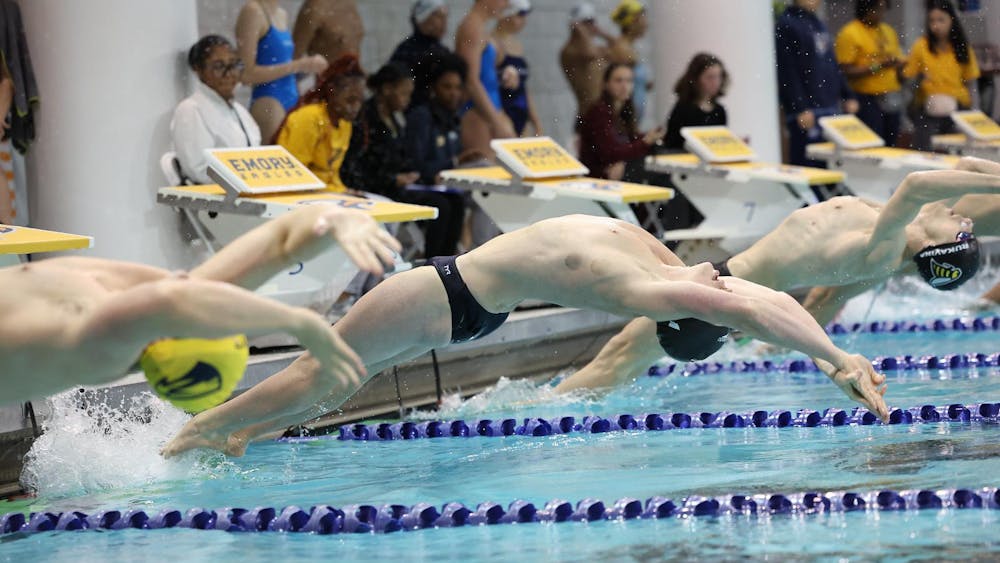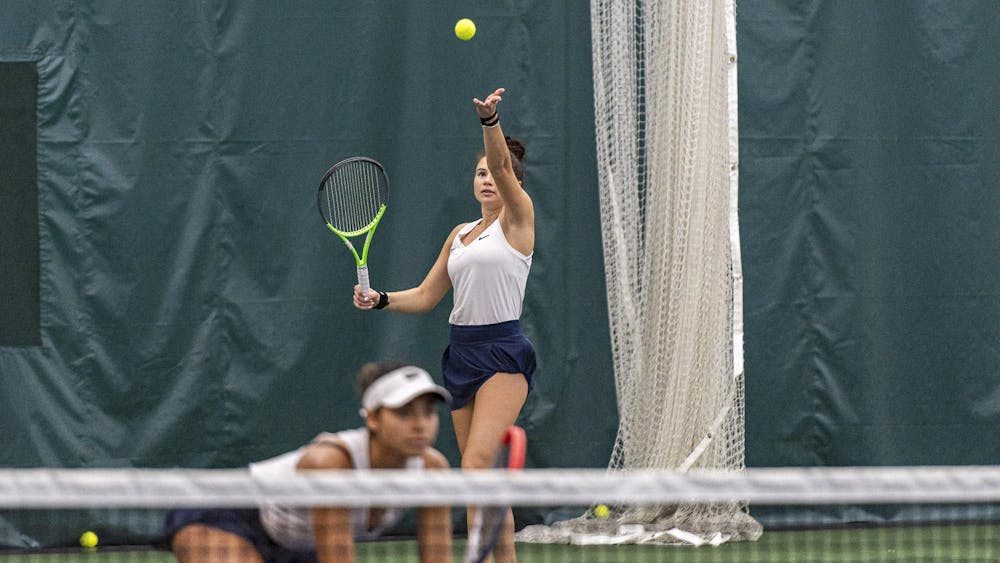 Seniors graduated from Emory College and Goizueta Business School three weeks ago, but for 10, their time on the diamond wasn't quite up. The Eagles worked their way out of the Losers Bracket in the South Region Tournament and then out of the Losers Bracket in the Division III College World Series (CWS) to the National Championship, falling to the University of Wisconsin-Whitewater.
Seniors graduated from Emory College and Goizueta Business School three weeks ago, but for 10, their time on the diamond wasn't quite up. The Eagles worked their way out of the Losers Bracket in the South Region Tournament and then out of the Losers Bracket in the Division III College World Series (CWS) to the National Championship, falling to the University of Wisconsin-Whitewater.
Fighting out of the Losers Bracket after a first round loss to Baldwin Wallace University (Ohio) meant that the Eagles would have to win another four games, including a double-header without any rest days, to reach the Championship. Whitewater, on the other hand, only had to win two games to be granted two days of rest before the Championship.
Because the tournament is double-elimination, Emory needed to outscore Whitewater in two games to capture the national title. Nonetheless, the Eagles endured, defeating Linfield College (Ore.), SUNY Cortland (N.Y.) and the University of Southern Maine.
"We were in a mentality: we can't go home," senior outfielder Daniel Iturrey said. The players were just continuing to play the game they love. "It felt surprisingly normal," senior catcher Jared Welch said. "There wasn't any pressure on any of us the whole week."
Head coach Mike Twardoski reinforced this mentality to his players throughout the season.
"After the loss, we just had to simplify the game," he said. "We played one game at a time."
The team continued to have fun together and stay relaxed on the field. The lucky "Senior Bush," a potted plant originally placed in the dugout by sophomore David Coble, accompanied the team in Appleton, Wis. for the CWS. Additionally, at the request of junior outfielder Brett Lake, junior center fielder Wes Peacock retrieved a sombrero on the side of the road near Emory's campus. During regionals and at the CWS, the team placed the sombrero on the bush, and senior catcher Josh Bokor later wore it himself. At the World Series, announcers interviewed Bokor and thought the oversized hat was hilarious. "
We're an energy-based team, so anything that keeps us loose and having fun is good," Twardoski said. "It's one of the things I love about the game. [The sombrero] got us some publicity too, which always helps to promote Emory baseball."
In the Championship game, which was played in Wisconsin Timber Rattlers' Fox Cities Stadium, senior Warhawks pitcher and Tournament Most Valuable Player (MVP) Scott Plaza shut out the Eagles for nine innings.
"He was very consistent and hit spots the whole game," Peacock said. "Sometimes we hit the ball where they were and we got a couple tough breaks on calls."
The Eagles' fatigue from their double header the day before also played a part in their weaker-than-usual bats in the game.
"We didn't come out as forceful as we had earlier in the tournament," Welch said. "It was a product of shear exhaustion."
The final score of the game was 7-0, Whitewater. Three Eagles were named to the All-Tournament team. Freshman third baseman Phillip Maldari went 11-24, leading the tournament with 11 RBIs, Welch went 11-24 with nine RBIs, and senior second baseman Jared Khan went 11-21 with seven RBIs.
Additionally, senior Brandon Hannon was named to the Capital One Academic All-America Baseball Division III Third Team, for outstanding academic and athletic performance. The outfielder was the second in the program's history to be awarded this honor. He batted .376 this season with 24 stolen bases and with 67 runs scored, the second most of any D-III player this season and of any Emory player in the program's history. Throughout his time at Emory, Hannon accumulated 187 runs scored, breaking the school's record. He graduated with a 3.46 GPA, earning degrees in mathematics and economics.
Although some underclassmen are already thinking about next season, the graduating seniors were happy to have extended their play as long they did.
"I wouldn't have wanted to end my career any other way," Iturrey said. "We got to finish off in the biggest cage possible."
For many, the road to the Championship game meant far more than the game itself.
"It stinks to lose the last game, but to win a regional and to get that far from the Losers Bracket is a huge accomplishment," Twardoski said. "It was one of the best exhibits of camaraderie and leadership I've seen."
This season was not the first in which Twardoski found success. Since taking over as Head Coach in 2000, Coach T, as he is known to his players, has now led the Eagles to four CWS appearances, including a previous advancement to the Championship from the Losers Bracket in 2007. Emory Baseball alumni, hailing from both winning and losing teams, supported the Eagles indefatigably throughout their 2014 campaign, many attending the Championship game in their old uniforms. Twardoski has worked to foster this Emory Baseball community throughout his tenure.
"When I got here, there wasn't really a lot of alumni base. I went back to when it started as just a club team. They couldn't believe I wanted a relationship with them," he said. "80 came back a couple years ago for the alumni game. I got 200 texts when we won regionals."
Because they signify not only the end of one stage, but the beginning of a next stage in the lives of graduating students, high school and college graduations are referred to as commencements. Perhaps the final game the team's ten seniors is better called a commencement, as new chapters now begin in their lives.
"It's always been a dream of mine to play at the next level," Iturrey said. "But my last experience with Emory was getting to play with my best friends in the College World Series, so I'm cool with a new path too."
Graduating 10 leaders can be tough on a team, but Twardoski predicts that between 10 and 15 freshmen and transfers will come in next year.
"There'll be some competition for spots, and that always makes for a better team," he said.
Additionally, the underclassmen are prepared to carry on the legacy of the team.
"We've been learning from the seniors for three years, and I think people will really step up to fill their shoes next year," Peacock said.
- By Zak Hudak
Read More





